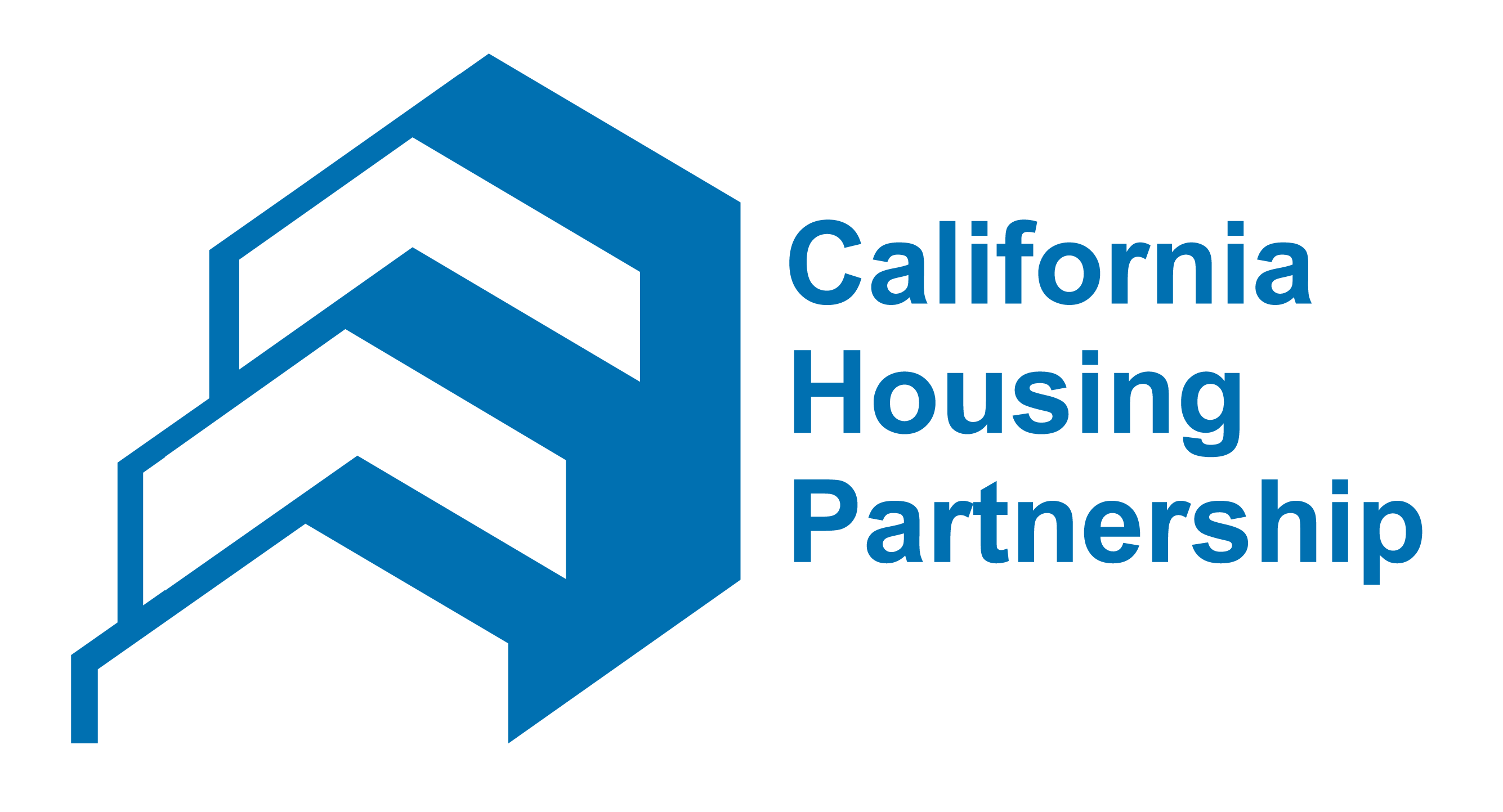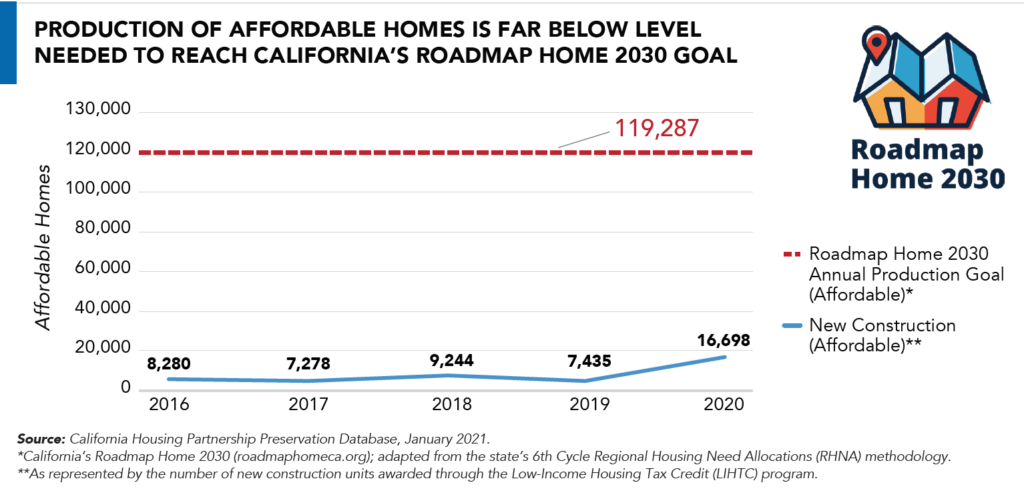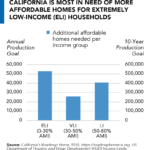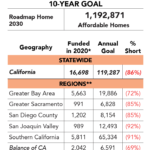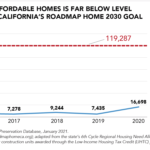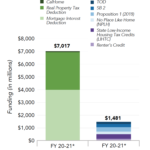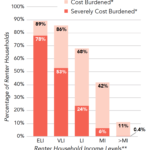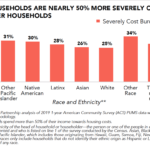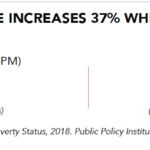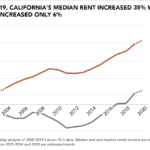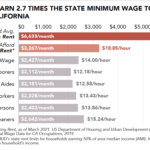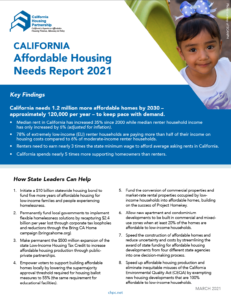 CALIFORNIA, March 18, 2021 — The findings in this year’s 2021 California Affordable Housing Needs Report from the California Housing Partnership tell a clear story: the pandemic impacts have only worsened an already untenable situation facing low-income California renters, with rising homelessness and cost burdens leading to increased housing fragility and worsening racial inequality.
CALIFORNIA, March 18, 2021 — The findings in this year’s 2021 California Affordable Housing Needs Report from the California Housing Partnership tell a clear story: the pandemic impacts have only worsened an already untenable situation facing low-income California renters, with rising homelessness and cost burdens leading to increased housing fragility and worsening racial inequality.- 78% of extremely low-income (ELI) renter households are paying more than half of their income on housing costs compared to 6% of moderate-income renter households.
- Black renter households are nearly 50% more severely cost burdened than white renter households.
- Median rent in California has increased 35% since 2000 while median renter household income has only increased by 6% (adjusted for inflation).
- Renters need to earn nearly 3 times the state minimum wage to afford average asking rents in California.
- California spends nearly 5 times more supporting homeowners than renters.
“This report makes clear why California needs a long-term plan with clear goals and metrics to achieve sustained progress for low-income California renters and the homeless. This is the promise of California’s Roadmap Home 2030, which we have developed with Housing California over the past year based on input gathered from experts across the state and people with lived experience,” says Matt Schwartz, president and CEO of the California Housing Partnership. “On March 25th, we will release the Roadmap Home spelling out how California can create 1.2 million new affordable homes, protect 1 million renters, and end chronic homelessness while also increasing racial equity by transforming discriminatory real estate and financial structures.“
We hope you will join us for this event and in our call for state leaders to embrace the Roadmap Home 2030.
- Initiate a $10 billion statewide housing bond to fund five more years of affordable housing for low-income families and people experiencing homelessness.
- Permanently fund local governments to implement flexible homelessness solutions by recapturing $2.4 billion per year lost through corporate tax loopholes and reductions through the Bring CA Home campaign (bringcahome.org).
- Make permanent the $500 million expansion of the state Low Income Housing Tax Credit to increase affordable housing production through public-private partnerships.
- Empower voters to support building affordable homes locally by lowering the supermajority approval threshold required for housing ballot measures to 55% (the same requirement for educational facilities).
- Fund the conversion of commercial properties and market-rate rental properties occupied by low-income households into affordable homes, building on the success of Project Homekey.
- Allow new apartment and condominium developments to be built in commercial and mixed- use zones when at least 20% of the homes are affordable to low-income households.
- Speed the construction of affordable homes and reduce uncertainty and costs by streamlining the award of state funding for affordable housing developments from four different state agencies into one decision-making process.
- Speed up affordable housing production and eliminate inequitable misuses of the California Environmental Quality Act (CEQA) by exempting new housing developments that are 100% affordable to low-income households.
*These eight proposals are a subset of 57 policy priorities that comprise the full Roadmap Home.
GALLERY IMAGES
